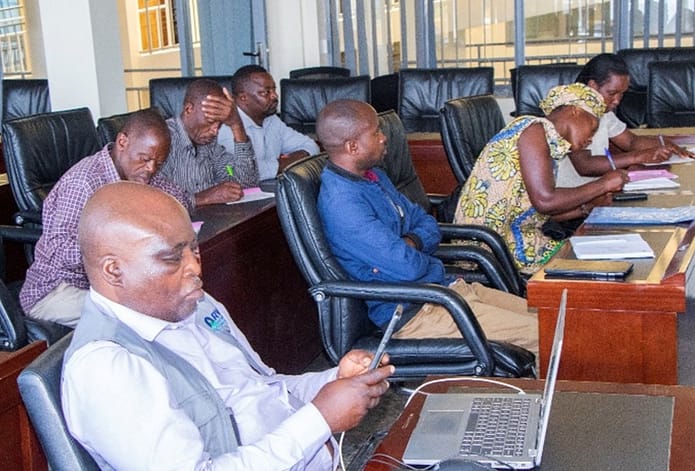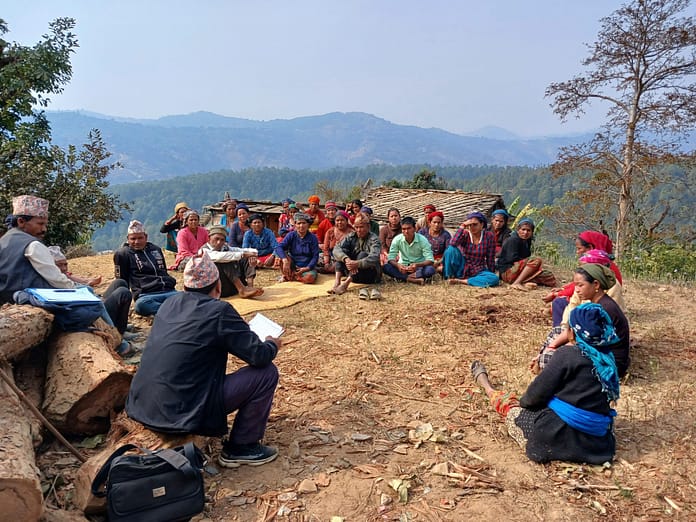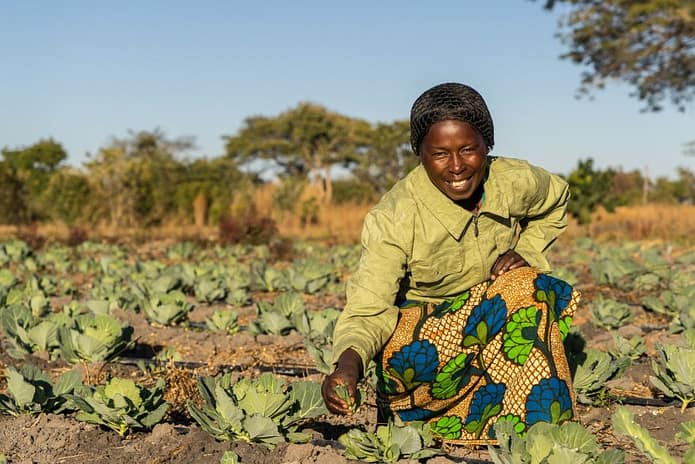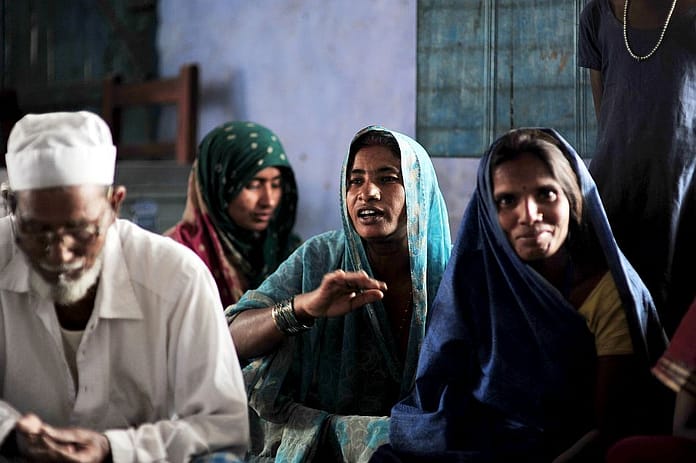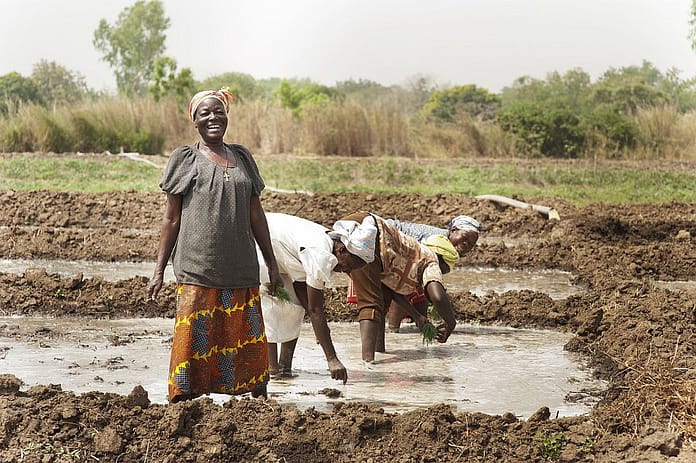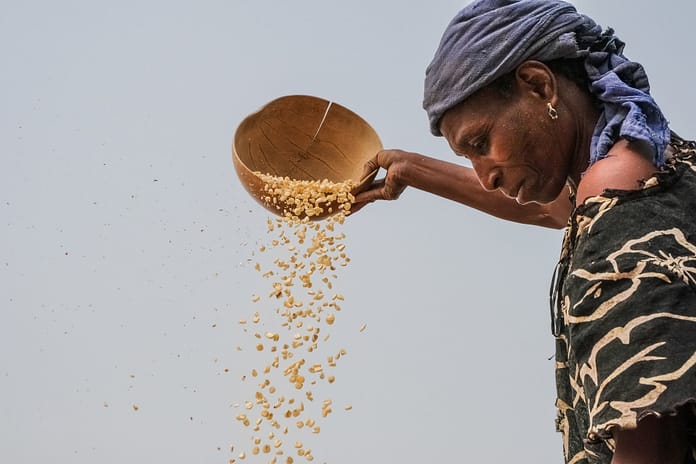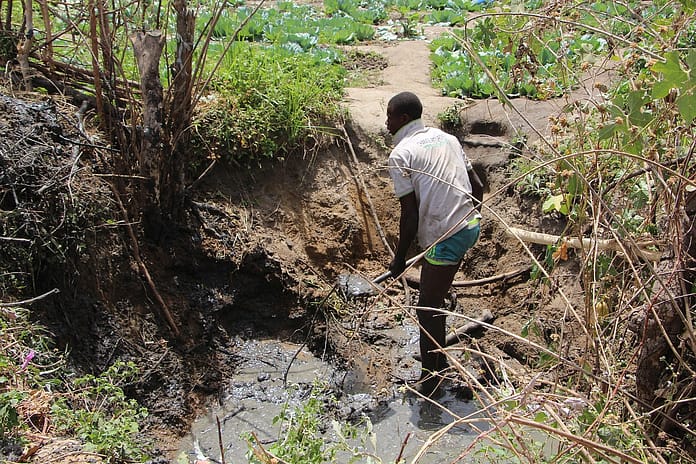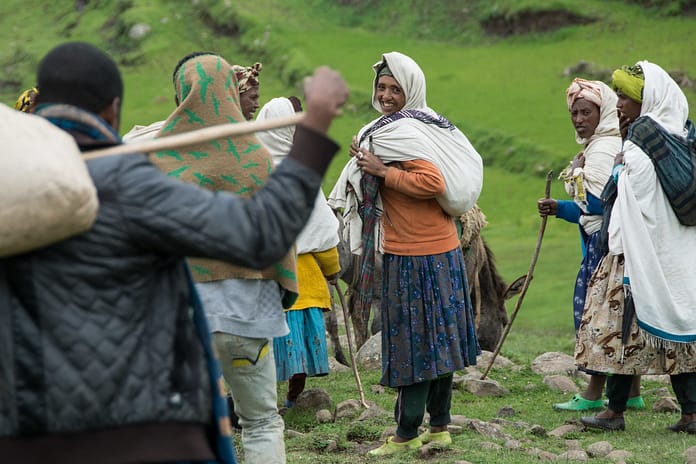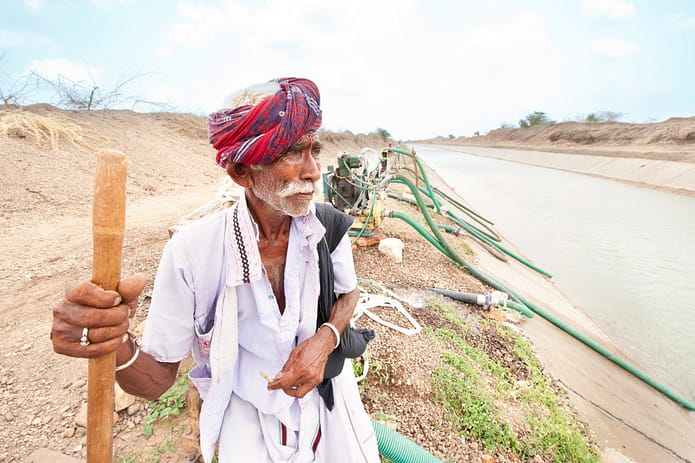Climate-induced displacement is rampant in Ethiopia’s Somali region. As co-lead of CGIAR’s Fragility, Conflict, and Migration Initiative IWMI is working to embed resilience-building solutions in Ethiopian refugee, internally displaced persons, and host communities.
By Sandra Ruckstuhl and Wolde Mekuria Bori

Starting new projects
Starting a new project is a bit like waiting in the departure lounge for your flight to take off. Everything is ready, you have everything you need, but there’s nothing you can do but wait. That’s more or less where we are as the year-end approaches. What we can share with you at this stage is a bit of background on, “Nature-based and other solutions for Human Resilience,” a CGIAR Fragility, Conflict and Migration (FCM) initiative project, and our plans for the project in the coming year.
Our destination is Ethiopia’s Somali Region, where climate-induced displacement is a reality for nearly a third of the region’s inhabitants. Approximately 278,025 individuals have already been displaced by drought. Addressing the long-term impact of displacements on this scale demands a shift from emergency responses to durable, multigenerational solutions. For now, we’re focusing on refugees, internally displaced persons (IDPs) and refugee hosting communities.
All our FCM program plans are based on recognizing the symbiotic relationship between the environment and humanitarian aid. Environmental degradation can instigate or exacerbate crises, while humanitarian operations, if not managed carefully, can further damage vulnerable ecosystems. For instance, deforestation around refugee camps can escalate flooding risks, endangering lives. The challenge lies in balancing life-saving actions with environmental preservation to enhance resilience.
Responding to needs
In response to the pressing need for food and water security, along with sustainable livelihoods among rural and urban communities, including refugees, IDPs, and host communities, our research aims to assess societal challenges, particularly in terms of water security, and develop nature-based solutions.
Outlined in eight objectives, the project aims to identify challenges from the perspective of beneficiaries, assess existing humanitarian actions, analyze opportunities for nature-based solutions, and evaluate their economic feasibility and environmental benefits. Our research aligns with the World Food Programme’s (WFP) resilience programs in the Somali Region, focusing on Dolo Ado and Bokolmayo Woredas.
The partnership with WFP involves filling critical data gaps in water resources management, designing nature-based solutions, and enhancing local ecological knowledge related to disaster risk management. Beyond skill development, the project seeks to embed these solutions into the Regional State’s management plans for the resilience of refugees, IDPs, and host communities.
Complementing partner strategies
This project doesn’t operate in isolation; it complements the Regional State’s Durable Solutions Strategy (2022 – 2025) and contributes to a broader global initiative focusing on resilience building in fragile contexts. Its genesis lies in discussions and recommendations from a symposium held in Nairobi, where WFP, Intergovernmental Authority on Development (IGAD), and IWMI collaborated to address critical water-related issues.
We share a common goal with our project partners, which is to identify needs, conduct on-ground research, and implement findings for sustainable impact. And we have some great partners: WFP, the Somali Regional State government of Ethiopia, NGOs, private sector actors, and federal bodies like the Ethiopian Disaster Risk Management Commission.
As we gear up for action in the new year, we have already completed the first steps of site selection and stakeholder mapping. The roadmap includes assessing existing humanitarian actions, understanding institutional and socio-cultural practices’ implications for resilience, evaluating nature-based solutions, and capacity-building activities. Starting December 18th, we will be conducting an inception workshop, bringing together participants representing government offices, the WFP, IDP representatives, refugees and host communities, and cooperating partners.
Stay tuned
On December 14th CGIAR will be in attendance as the Global Refugee Forum hosts “Linked Event on Melkadida Refugee Compact and Kebribeyah Integration Road Map,” a session jointly organized by the government of Ethiopia and the IKEA Foundation. The important event will showcase plans for advancing the socio-economic inclusion of refugees in the Ethiopian-Somali region, as well as offering stakeholders the opportunity to share lessons learned and discuss the way forward.
Stay tuned for updates as we journey through this project, striving to forge resilient communities in Ethiopia’s Somali Region. Our destination is merging humanitarian aid with environmental sustainability, ensuring a better, more secure future for all those affected by climate-induced displacement.
About the authors
Sandra Ruckstuhl is Co-lead of IWMI’s Fragility, Conflict and Migration Initiative l and Senior Researcher. Sandy has over two decades of experience in organizational and program management, investment operations and policy impact analysis, and applied social research for development and humanitarian interventions. For more information on the work of CGIAR’S Fragility, Conflict and Migration initiative contact Sandra Ruckstuhl at s.ruckstuhl@cgiar.org.
Wolde Mekuria Bori is an IWMI land resources management researcher in Addis Ababa, Ethiopia. Before joining IWMI Mekuria Bori served as a lecturer at Mekelle University and worked at the Holtea Agricultural Research Center and Relief Society of Tigray, Ethiopia. Wolde’s areas of expertise include sustainable natural resources management, ecological restoration, and land rehabilitation.


